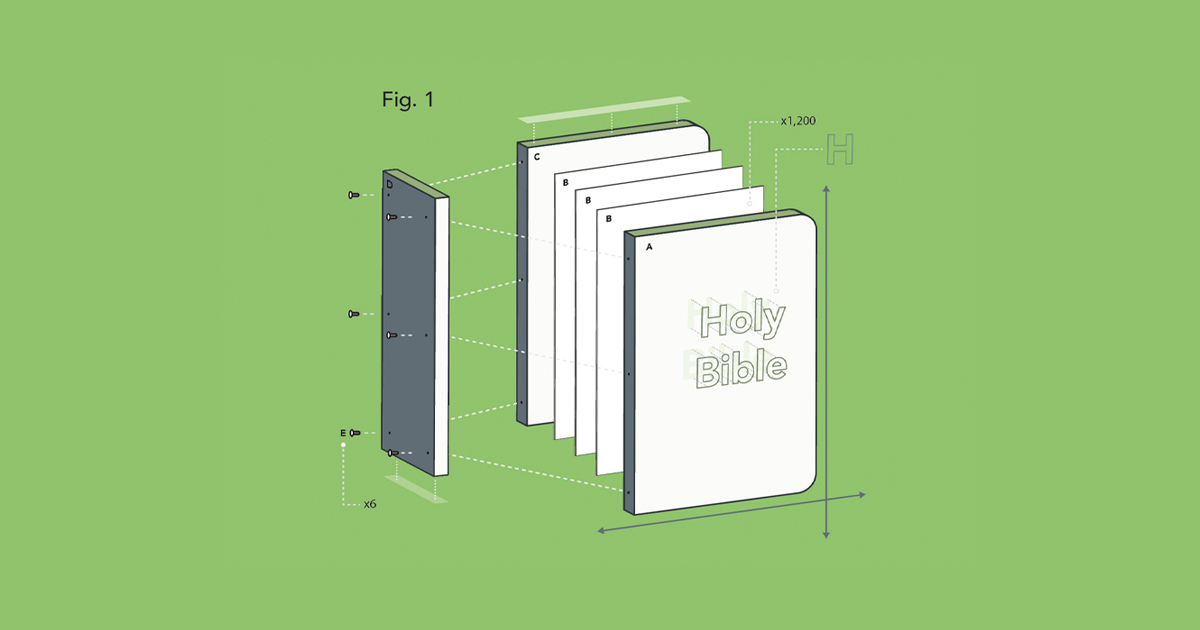
In many ways, reading the Bible is like reading any other book. However, if the Bible is breathed out by God, there are some key differences that we need to take on board right at the start.
My wife, Fiona, is an English Literature teacher by background, and an avid reader. Because of that, there is an endlessly growing pile of books by my bed (and on my Kindle) which Fiona has recommended. I never get through the pile! In fact, I tend to pick and choose.
Some of her recommendations are read and relished. But some just get ignored (if I don’t like the look of them). Some are started but cast aside after a few pages (if I don’t get into them). And to be honest, it doesn’t really matter.
But when it comes to reading the Bible, it is a bit different. If the Bible contains God’s words, then we can’t just “take it or leave it”! If this is how God speaks to humanity, then this book demands our attention.
Usually when we read a non-fiction book or article, it’s important to weigh up whether or not it comes from a reputable source. We might try to identify any bias, ask ourselves if it fits with what we already know to be true, weigh up the arguments and so on.
The Bible is different. Its authority (and trustworthiness) comes from God himself. It gives us God’s perspective on our world and on us. There’s no need to fact-check it because, if it is God who is speaking, then his words are, by definition, true and reliable (and if we do check the facts, we’ll always find that they match up anyway). If and when it clashes with our perspective on reality, it’s our perspective that’s skewed, not his. God’s words are profound, wise, searching and life-giving. We really can trust them.
"If the God who knows all things speaks to us, then we would be really foolish to ignore what he says."
If we put those two things together—if the Bible comes to us carrying God’s authority (as the Creator and Ruler of the universe) and is utterly trustworthy—then we need to do what it says. This is a bit different to just trusting the Bible. Over the years I have read and ignored quite a lot of books. Books on how to train my dog; how to organise my desk; how to become an ultra-effective leader; and how to make green juices. I have no reason to doubt that those authors wrote true and helpful things. In this sense, I trust them. I just didn’t bother doing anything they said.
When we read other books, not only do we assume that we are free to assess what they say; we also know that it is entirely down to us whether we act on whatever it is they are suggesting. And if we don’t follow through? It’s no big deal. We have probably never met the author, and he or she certainly has no authority to tell us what to do. But what if God himself is the ultimate author? That changes things—we need to do what he tells us! If the God who knows all things speaks to us, then we would be really foolish to ignore what he says. We need to do what this wise and generous God tells us. It just makes sense.
The final difference is really the culmination of the others. If the Bible is God’s word, then we need to listen to it, believe it and do what it says—and to do all that requires investing time and energy into reading it carefully.
Reading the Bible isn’t just reading words on a page but listening to one who loves us more than life itself, and who has a very clear agenda for our lives and our world. That’s why it makes sense to ask for God’s help when we read the Bible—help to understand what it means and how it applies to us.
It’s also why we can’t easily rush reading the Bible. We need to give it time—preferably regular, uninterrupted, unhurried time. These words are ancient—and because most of us don’t read a lot of ancient literature, that in itself will slow us down. But more than that, the Bible is so deeply personal—addressing all kinds of weaknesses and sadness as well as awakening all kinds of joys and resolve—that we need to make sure we have time to think carefully about what it means and what it says to us.
This article is adapted from an excerpt of Read This First by Gary Millar. In a warm, approachable style, Millar gives readers the tools to read and understand the Bible for themselves, helping them move from confusion to confidence as they enjoy refreshment in God’s word.